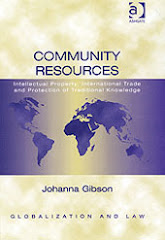
With all the row on press freedom and Internet access in China during the Olympics, it is interesting to note other obstacles to knowledge, including those threatening the dissemination of local knowledge and development.
In a recent article in Nature, 24 July, Lan Xue, Director of the China Institute for Science and Technology Policy, Tsinghua University, Beijing, raises issues with the globalisation and corporatisation of science and the possible threat to local innovation in China and other developing countries.
With participation and collaboration in global innovation, China's role in innovation is a marked development on its traditional manufacturing position in the market. However, participating as an innovator in the trade in global knowledge may actually limit China's ability to build capacity and development in various technical industries. Disseminating and repeating the knowledge is perhaps more critical to China's development than patent applications. Further, perceived obstructions to the flow of knowledge through intellectual property protection (whether through working that knowledge or accessing scientific publications) may also dictate research priorities other than those of immediate importance to China or other developing countries: "Research priorities in developing countries may be very different from those in developed nations, but as sicence becomes more globalized, so too do priorities. At the national level, developing countries' research prioirites increasingly resemble those of the developed nations."
Having access to knowledge for ongoing research and development, as distinct from realising the products of that knowledge in global trade, is of particular concern to researchers in China. As Lan Xue explains, "for a country in development, the application of knowledge in productive activities and the related social transformations are probably more important than the production of the knowledge itself."
Having access to knowledge for ongoing research and development, as distinct from realising the products of that knowledge in global trade, is of particular concern to researchers in China. As Lan Xue explains, "for a country in development, the application of knowledge in productive activities and the related social transformations are probably more important than the production of the knowledge itself."



No comments:
Post a Comment